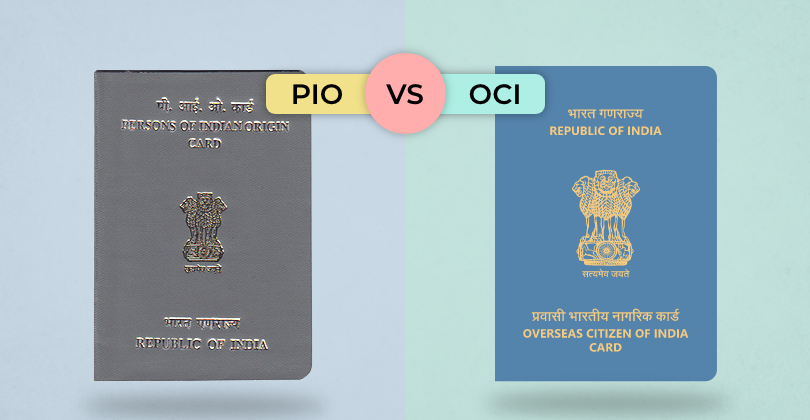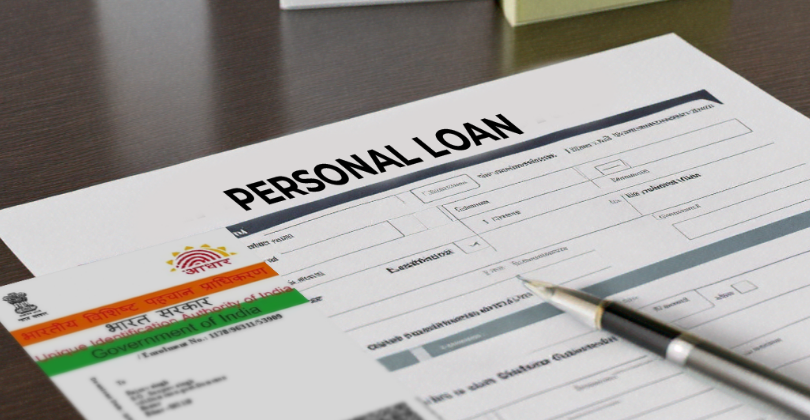Are you of Indian origin and living abroad? You've probably come across terms like PIO and OCI. These cards offer different benefits, but it can
Loans are a common requirement among individuals and businesses alike. Whether you need a loan to purchase a home, finance education, or expand a business, learning how to improve your loan eligibility can greatly enhance your chances of securing the funds you need. Lenders review several factors affecting your income and creditworthiness while determining a prospective borrower’s personal loan eligibility. These factors include credit score, income sources, employment history, and debt-to-income ratio.
This article is a comprehensive guide to enhancing your loan eligibility, enabling you to navigate the borrowing process effectively and secure favourable loan terms.
Proactive Measures for Improving Loan Eligibility
Consider the methods listed below to improve your credit score and enhance the quality of your loan application. These proactive techniques will help you handle the loan application process more skilfully and improve your chances of getting the loan you need.
-
Understand Your Current Financial Position
Assessing your current financial position is crucial before you begin the loan application process. Start by reviewing your credit report and score. Obtain a free copy of your credit report and ensure the information is accurate and current. You can easily check your credit report online on various platforms, such as KreditBee. If you notice any errors or discrepancies, promptly get them addressed to rectify inaccuracies.
Review your debt position and check the repayment schedules of any outstanding loans you currently service. Lenders consider your debt-to-income ratio when assessing loan eligibility, so minimising your debt burden is essential. Prioritise paying off high-interest debts and reduce outstanding balances wherever possible. This can positively impact your credit score and improve your loan eligibility.
Want to check your loan limit?Check Eligibility! -
Improve Your Credit Score
A strong credit score is a key factor that determines loan eligibility. To enhance your credit score, start by making timely payments on all existing loans and bills. Late payments can negatively impact your creditworthiness. Paying bills on time demonstrates financial responsibility and improves your creditworthiness.
Another efficient technique to raise your credit score is to lower your credit use percentage. Limit your credit card balances to 30% of your credit limit. Maintaining a healthy credit utilisation ratio is possible by making full monthly payments on credit card balances.
Your credit history improves your credit score. Consider keeping your old credit accounts open because they extend and strengthen your credit history. Lenders consider borrowers with long credit histories more reliable.
📗 Related reading- Ways to Improve Your CIBIL Score
-
Increase Your Income and Stability
Lenders assess your income and employment history to gauge your ability to repay a loan. Increasing your income can improve your loan eligibility and borrowing capacity. Consider options such as negotiating a raise, taking on a part-time job, or exploring alternative sources of income.
Stability is another vital aspect that lenders consider. Demonstrating a steady employment history can enhance your loan eligibility. Avoid frequent job changes if possible, as it can be noted as ‘uncertainty’ during loan application processing. Self-employed individuals should ensure their businesses have a positive track record and reliable income sources.
-
Reduce Existing Debt
Reducing your existing debt can significantly improve your loan eligibility. Lenders consider your debt-to-income ratio, which compares your monthly debt payments with your income. Lowering your debt-to-income ratio demonstrates your ability to manage your finances responsibly and improves your chances of securing a loan.
Create a debt payback plan that prioritises the repayment of high-interest loans. Consider consolidating your loans into a single loan. This can make repayment easier and result in interest reduction.
-
Provide Collateral or a Guarantor
If your loan application is considered high-risk due to your credit history or income level, providing collateral or a guarantor can enhance your loan eligibility. Collateral can be in the form of property, assets, or cash deposits, which lenders can seize if you default on the loan. A guarantor is an individual with a stable income and a good credit record who agrees to repay the loan if you are unable to do so. Both options provide additional security to the lender, increasing the likelihood of loan approval.
Build a Strong Relationship With the Lender
Establishing trust with your lender is important if you want to increase your chances of securing a personal loan. Here are a few tips to help you do that:
-
Research well and find the right lender for your funding needs. Look for a reputable institution that specialises in the type of loan you need.
-
When you communicate with the lender, be clear and professional. Be responsive and provide all the information and documents they need. Demonstrate how you consider borrowing a serious commitment, outline your financial goals, and share how you intend to repay the loan in time.
-
Consider seeking pre-approval before you officially apply. It's a great way to demonstrate your seriousness and ascertain how much you could borrow.
-
Demonstrate to the lender how responsible you are with your finances. Keep your bank accounts in good shape, avoid late payments, prevent check bounces, and manage your existing loans wisely.
-
If you're thinking long-term and might need more loans in the future, focus on building a solid relationship with your lender. Make your payments on time, stay in touch, and show them you're a reliable borrower.
-
If there's a relationship manager available, take advantage of their expertise. They can provide personalised advice, guide you through the loan process, and even advocate for your application.
-
Lastly, don't be afraid to provide additional documentation if needed. It can strengthen your application and give the lender a better understanding of your financial situation.
Building a strong relationship with your lender takes time and effort, but it can significantly improve your loan eligibility. Follow these tips, and you'll be able to secure the loan you need!
Exploring Alternative Financial Solutions
In addition to the strategies discussed above, another avenue to consider for increasing personal loan eligibility is alternative financial solutions. These solutions include platforms like KreditBee, which offer innovative and flexible lending options. KreditBee specialises in providing quick and convenient personal loans to individuals, with a streamlined application process and fast disbursal of funds. It offers loans of up to ₹4,00,000, which can be processed within 10 minutes.
Their customer-centric approach considers a range of factors beyond just credit scores, making it possible for individuals with varying financial backgrounds to secure loans. Through such alternative financial solutions, individuals can expand their options and increase their chances of securing the funds they need.
Conclusion
Increasing your personal loan eligibility requires proactively managing your finances and demonstrating financial responsibility to lenders. It's important to note that each lender has specific criteria and guidelines. Hence, it's advisable to research lenders and the corresponding loan products to find the best fit for your financing needs. With a well-prepared loan application and improved loan eligibility, you can confidently pursue your financial goals and secure the funding you need.
AUTHOR
KreditBee As a market leader in the Fintech industry, we strive to bring you the best information to help you manage finances better. These blogs aim to make complicated monetary matters a whole lot simpler.







